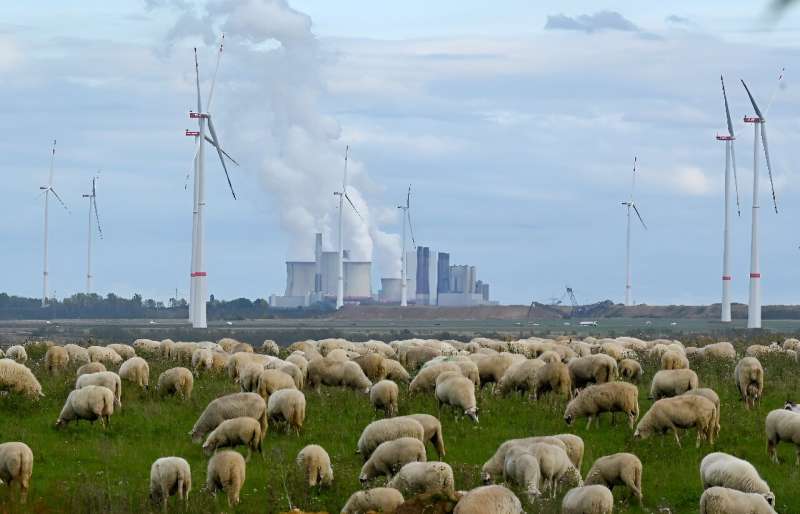
an official United Nations progress report.
The report said the 2015 Paris agreement had succeeded in pushing climate action forward, but now "more efforts are needed on all fronts.". The report will be a key basis for the Dubai Climate Summit at the end of this year. "The world is not following the long-term goals of the Paris agreement," including keeping global warming below 1.5 degrees Celsius above mid-19th century temperatures,
the report said . The so-called "look back" report is based on a major scientific assessment by the United Nations Intergovernmental Panel on Climate Change.
In order to meet the 1.5C target, global greenhouse gas emissions would have to peak in 2025 and then decline sharply. In addition, in order to achieve the other goal of the Paris Agreement, which is to achieve zero carbon emissions by 2050, it is also necessary to phase out the burning of all fossil fuels that cannot capture or compensate for emissions. The pace at which the global economy is being purged from oil, gas and coal will be hotly contested
at the 28th United Nations Climate Change Conference, which will convene for two weeks at the end of November and will be attended by nearly 200 countries.

Limiting the cost
of solutions to climate deterioration Sultan Al-Jaber, president of the United Arab Emirates National Oil Company ADNOC and chairman of the 28th Climate Conference, said, "By 2030, we need to triple the production of renewable energy and commercialize other zero-carbon solutions." Promote an energy system that completely discards uncompensated fossil fuels.
The review also points out that clean energy must increase substantially, according to the United Nations' first assessment of the world's progress in reaching the Paris Agreement climate goals.
"Expanding renewable energy production and phasing out all fossil fuels that cannot capture carbon emissions are necessary to achieve zero emissions," the report said. "No offset" refers to the absence of any technology to remove carbon emissions at the source or in the atmosphere. Emissions have peaked in
developed and some developing countries, but continue to grow in many of the world's largest economies. The burden
of the
G20 comes on top of a decline in carbon dioxide emissions in 2020 as the global economy slows down due to the COVID pandemic, which has stabilized at around 4 billion tons per year since 2019. "We know that the burden is on 20 countries," said Simon Steele, the
UN's climate chief. He was referring to the G20 countries, which account for 80% of global emissions, which are holding a summit in Delhi this weekend. Global carbon emissions must peak by 2025 if humanity is to curb global warming in line with the Paris targets, according to the

UN Global Inventory report. "The communique (from the G20) is very inadequate,"
he added.
China, the United States, the European Union and India together account for more than half of total emissions. Tom Evans, a policy analyst at
climate think tank E3G, commented that the global review report calls for radical and immediate action to achieve the goals of the Paris Agreement.
The review also highlighted the need for increased financial support for developing countries so that they could adapt to the climate disasters that were already eroding their economies.
Many African countries are already mired in debt, facing worsening droughts, floods, heat waves and storms as they transition away from fossil fuels. A global energy transition to zero emissions would require trillions of dollars and a "transformation of the financial system" to align with climate priorities,
the report said.
But the report warns that hundreds of billions of dollars continue to be invested in supporting pollution activities. Investment needed to address climate change in

developing countries.
It said $892bn had been invested in fossil fuels each year between 2019 and 2020, with another $450bn spent on fossil fuel subsidies. Meanwhile, funding for climate action reached $803 billion over the same period, which the report says is only a third of what is needed to meet the Paris goals.
The report comes amid growing calls for the World Bank and the IMF to dramatically redesign their activities to meet the challenges of a warming world. "This first global review is a moment for countries to say to themselves, 'We will mark our homework'," said Tom Evans, policy analyst at
climate think-tank E3G.
He added: The decisions and policies we make now will determine whether we halve our emissions this decade. If it is later than this year or next year, the chance of achieving 1.5 degrees Celsius is basically closed.









 浙公网安备33010802003254号
浙公网安备33010802003254号